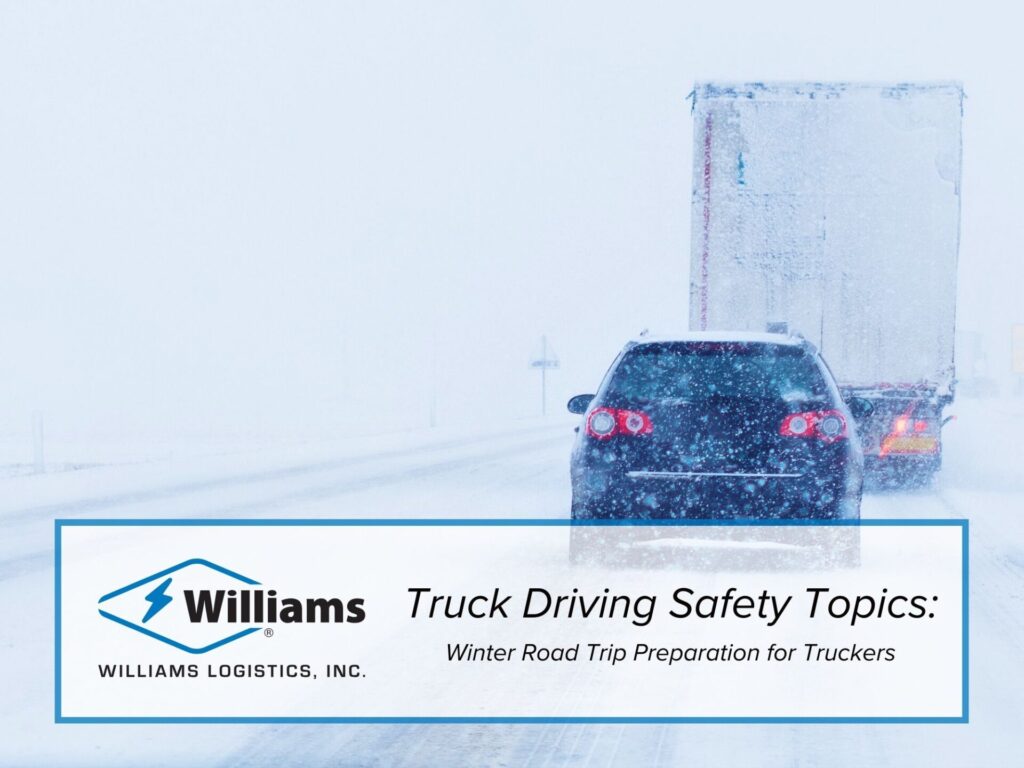As winter weather stretches out across the country, it is crucial for truck drivers to be prepared and to prioritize trip planning. With treacherous road conditions, snowstorms, and decreased visibility, taking proactive measures to ensure a safe journey becomes even more essential during this time of the year. In this blog post, we will explore valuable insights on winter road trip preparation for truck drivers.
How to Watch Weather to Plan for Winter Trips
Trip planning is a critical aspect of truck driving, regardless of the season. However, during winter, when the roads are often unpredictable and potentially dangerous, thorough planning becomes even more crucial. Before embarking on a journey, truck drivers should consult multiple weather forecasts to identify potential obstacles or storm systems they might encounter along their route. Additionally, searching for alternate routes or emergency stopping locations can significantly save time and help avoid perilous situations.
Winter Road Trip Preparation for Truckers
To prepare for a winter road trip, truck drivers should undertake several steps to ensure their safety and the well-being of others on the road. In addition to safe driving techniques, truckers should also:
-
- Check the weather forecast: Before embarking on a winter road trip, it's essential to check the weather forecast for the entirety of your journey. This will help you plan your route accordingly and prepare for any severe weather conditions. Use GPS technology or weather apps to stay updated on current road conditions and any closures.
- Inspect your truck: Conduct a thorough inspection of your truck to ensure everything is in proper working condition. If any part of your truck needs repair or replacement, address it before hitting the road. Pay special attention to:
-
- Truck Battery
- Brakes
- Heater
- Tires: Check for adequate winter tire pressure and traction levels. (Consider equipping your truck with snow or winter tires)
- Windshield Wipers: Ensure your wipers are in working condition - doesn’t leave streaks. (Consider equipping your truck with winter wiper blades)
- Lights: As cloudy headlights can limit visibility, don’t forget to clean the headlights and tail lights.
- Fluid levels: Ensure your truck has an adequate amount of antifreeze, coolant, and windshield washer fluid, as well as well-maintained oil and fuel levels.
-
- Equip winter essentials: Make sure to carry essential winter supplies such as an ice scraper, snow shovel, tire chains, extra blankets and warm clothing, emergency flares, flashlights with extra batteries, and a first aid kit. Additionally, always carry extra non-perishable food items, water, and medications in case of unexpected delays or road closures.
- Inform someone about your trip: Truck drivers should inform someone about their travel plans to establish a safety net. Regularly checking in with a friend, family member, or dispatch can help monitor progress and provide assistance if needed. This practice ensures that someone knows the truck driver's whereabouts and can take necessary action if communication is lost or delays occur.
- Stay updated on road conditions: Monitor radio stations for current traffic and weather updates while driving. This will help you avoid any unexpected situations and find alternative routes if needed.
Preparing for Winter Weather
Preparing for winter weather goes beyond just examining road conditions and vehicle maintenance—it also entails personal readiness. Truck drivers should dress appropriately for cold temperatures, wearing layers, gloves, and a winter hat. Staying hydrated and having warm beverages on hand can help maintain body temperature during long drives. Moreover, staying vigilant about weather updates during the trip is essential, as conditions might change unexpectedly.
Winter road trip preparation involves thorough planning, preparing vehicles, taking personal precautions, and being aware of weather conditions. By preparing for winter weather, prioritizing safety, and adhering to best practices, truck drivers contribute to decreasing accidents caused by winter conditions that may result in injuries, delays, and even fatalities. Remember, it's better to be over-prepared than underprepared when facing the uncertainties of winter on the road.
